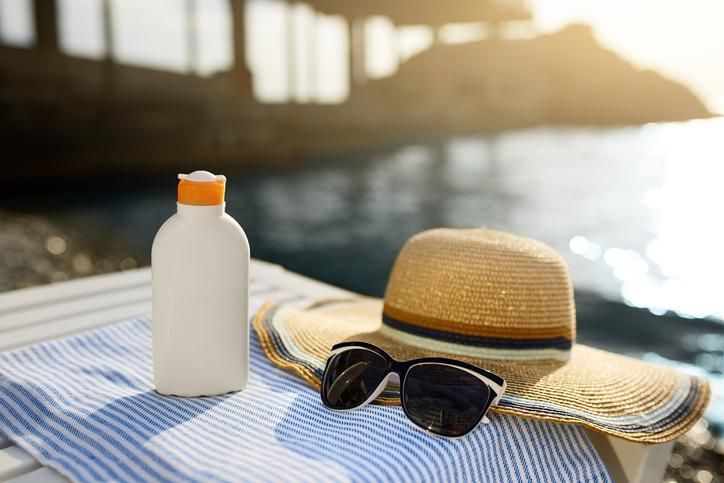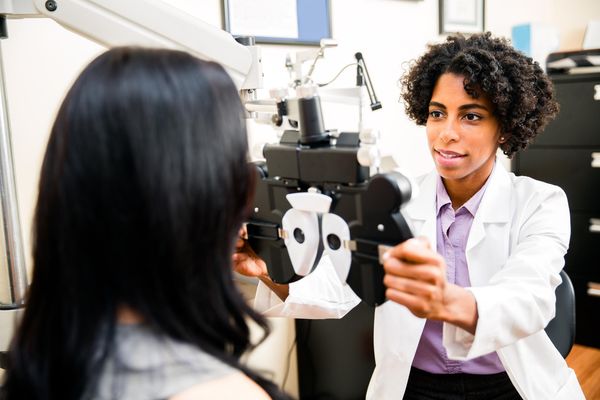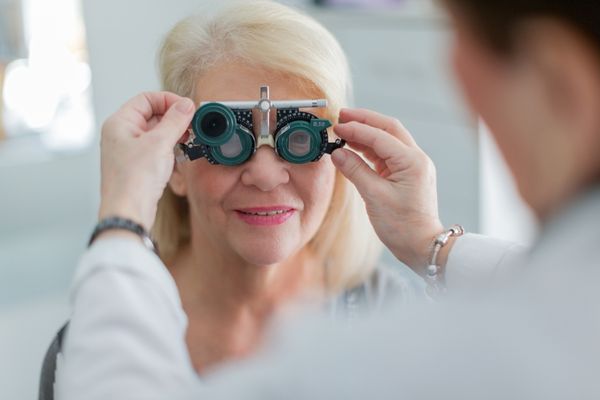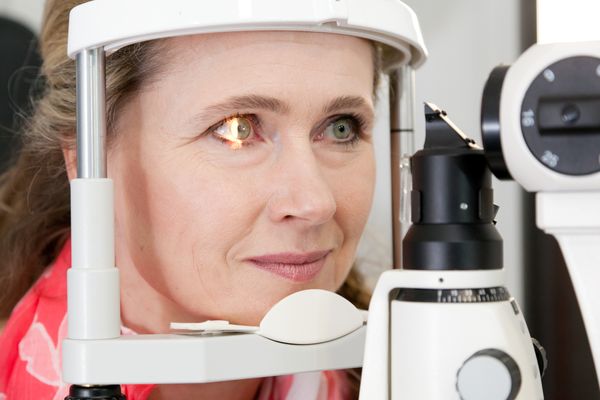It’s summer, and hopefully you’re enjoying a little sunshine. But do trips to the pool leave you with red, irritated eyes? Or have you noticed blurred vision or redness after simply being in the sun too long? Summertime poses a host of threats to our eye health — from dangerous UV ray exposure to yard-work accidents.
We spoke with Brittani Carver-Schemper, O.D., an optometrist who also has firsthand experience with devastating eye conditions, to help guide your eye health through the warm summer months. Here are 10 ways to take on summertime with healthy, happy eyes.
1. Shield your eyes
We know that ultraviolet (UV) rays are a threat to our skin, but what about our eyes? The World Health Organization estimates that UV exposure is responsible for up to 20% of cataracts (globally), which is the number one cause of treatable blindness worldwide. UV rays also age every part of the eye and increase the risk for macular degeneration, an irreversible, common cause of central vision loss. You can even get a sunburn on your eye — called photokeratitis — which can cause pain, redness, blurred vision, headaches or a gritty sensation. Using Tretinoin skin creams, taking antibiotics and even having lighter-colored eyes can put you at even higher risk for UV damage.
Get a good pair of sunglasses with 100% UV protection — and remember that not all brands that advertise UV protectiveness actually protect from 100% of UV rays. Carver-Schemper recommends glasses with UVA, UVB and UVC protection.
A recent study found that the design and geometry of sunglasses influenced their effectiveness in blocking UV radiation to the eyes, so make sure your sunglasses fit properly. This study also found that sunglasses cannot block UV radiation entirely on their own.
Hats also help protect your eyes from UV rays. A hat with a 3-inch brim can block up to half of the UVB rays that could damage your eyes or eyelids.
Last but not least, seek shade. Spending time under trees, umbrellas or any covered area while outside will help reduce your risk for UV damage to your eyes.
2. Be smart with sunscreen
Sunscreen helps prevent skin cancer, and it’s important to reapply often. The thin skin on your eyelids and around your eyes needs special attention. Five percent to 10% of all skin cancers occur on the eyelid.
Carver-Schemper recommends skincare products with SPF built in. “But if you have to use a regular sunscreen, it’s better to use a mineral-based one because they are made for sensitive skin, and will not sting your eyes as you sweat,” she added.
While you should try to get your sunscreen as close to your eye as you can, be careful. Misplaced sunscreen can cause redness, tearing, burning and even blurred vision if it makes contact with your eyes. If you do get sunscreen in your eye, Carver-Schemper recommends flushing it out with artificial tears or OTC eyewash. If you don’t have either on hand, try using distilled water or a towel. “We don't recommend [using tap] water… If you have distilled water, that's fine, but water out of a sink contains bacteria that can cause more eye issues,” Carver-Schemper explained.

3. Carry artificial tears
Flushing out sunscreen isn't the only reason you might need artificial tears this summer. Dry eyes, which occur when our tear production is imbalanced, can be worsened by wind, dry heat and humidity during the summer season. “Because the tear film is part of our vision, if our tear film isn't working properly, then you’re going to have some issues with burning and tearing, and maybe fluctuation in vision,” Carver-Schemper said.
Preservative-free artificial tears are your best choice because fewer additives reduces your risk for irritation.
4. Avoid time in front of fans
Spending time under fans while reading, working on the computer or watching TV can worsen already-dry eyes during the summer. Aiming the car’s AC directly on your eyes also isn’t a great plan. While the summer months can cause everyone to experience dry eyes, those who have dry eye disease are especially at risk for aggravation.
5. Treat eye allergies
If you have eye allergies in the summer, you’ll recognize the swelling, itching, tearing, redness and potential blurred vision. Check with a healthcare provider (HCP) to be sure that allergies are causing your eye irritation, and with the HCP’s help, you can decide whether eye drops, OTC allergy medication or cold compresses could help alleviate your symptoms.
6. Wear eye protection during yard work
Did you know that half of eye injuries occur at home? Luckily, 90% of those injuries can be prevented by wearing proper eye protection. Invest in proper eye protection so you can be safe while mowing the lawn or working in your garden.
7. Keep your eyes safe in the water
While swimming anywhere, it's important to wear goggles to protect your eyes from irritation. And if you wear contact lenses, avoid wearing them in any body of water. “Lakes and rivers especially could cause a lot of issues with devastating contact lens infections that can permanently decrease vision,” Carver-Schemper explained. If you can’t go without your eyewear, she recommends using daily disposable contact lenses or prescription goggles.

8. Eat healthy
Take advantage of all the fresh fruits and vegetables available to you in the summer. Specifically, leafy greens (spinach, arugula and kale), tomatoes, sweet potatoes, broccoli and zucchini are rich in important nutrients — carotenoids, lutein and zeaxanthin — which protect your eyes from damage and degeneration.
9. Stay hydrated
“Dehydration can cause eyestrain, dry eyes, headaches and blurred vision,” Carver-Schemper said.
If you're exercising outside this summer, you’ll likely notice your own perspiration. But in lakes, pools or the ocean, you might not. Regardless, it's crucial to remember to hydrate more during the summer months to help your entire body, as well as your eyes, function at its best.
10. Protect your kids’ eyes
Eighty percent of UV damage occurs to the eyes before the age of 18, so it’s important to make sure your kids are wearing hats and sunglasses as well as sunscreen while they’re outside. Wrap-around sunglasses are best for protecting every angle of kids’ eyes, and croakies can help kids keep track of their glasses.
So get out there and enjoy all the summer has to offer while following these safety tips. Your eyes will thank you.
- Contact Lenses: Tips for Proper Wear and Care - HealthyWomen ›
- Health in Your 30s - HealthyWomen ›
- Chronic Dry Eye - HealthyWomen ›
- Protect Your Eyes From the Sun - HealthyWomen ›
- Women’s Eye Health 101 - HealthyWomen ›







